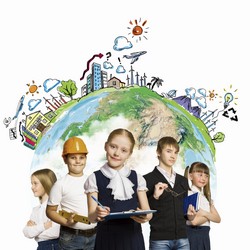Children changing the future of science for society
Global challenges of the 21st century require new ways of thinking. One such innovative plan centres on involving children in the decisions of today since they are the future of our society. This was the idea behind the project SIS CATALYST(opens in new window) (SiS Catalyst: Children as change agents for the future of science in society). The consortium comprised a range of professionals involved with science and society from an array of disciplines. Over 50 organisations from more than 30 countries combined their efforts to develop a model for a new educational system that puts children in the driver's seat of learning. It was noted that there is inequality in terms of access to knowledge, education and opportunity across countries. This means that the global challenges facing the world need local solutions. SIS CATALYST set out to address how children can be included in the dialogue between society and the scientific and technological community. They also sought to develop eight case studies of successful interactions among children and higher education institutions, with associated practical guides. With the aid of a Pan European and Mutual Agreement Process, they built tools that enable higher education institutions to check their progress of lifelong learning and social inclusion with science in society activities with children. As one of the very first Mobilisation of Mutual Learning Action Plans, the project has contributed both new knowledge on the concept of children as agents for change and a broader understanding of the mobilisation of mutual learning processes. SIS CATALYST also provided the opportunity to reflect on the broadest ethical considerations of this learning and the impact on public engagement with science. Deliverables were disseminated through policy seminars, conferences and What We Recommend Events with children in over 20 countries. Additional developments took the form of RRI Tools and are encapsulated within the book 'Children as Change Agents for the Future of Science and Society'. These deliverables can be useful for policymakers as well as the academic community.



